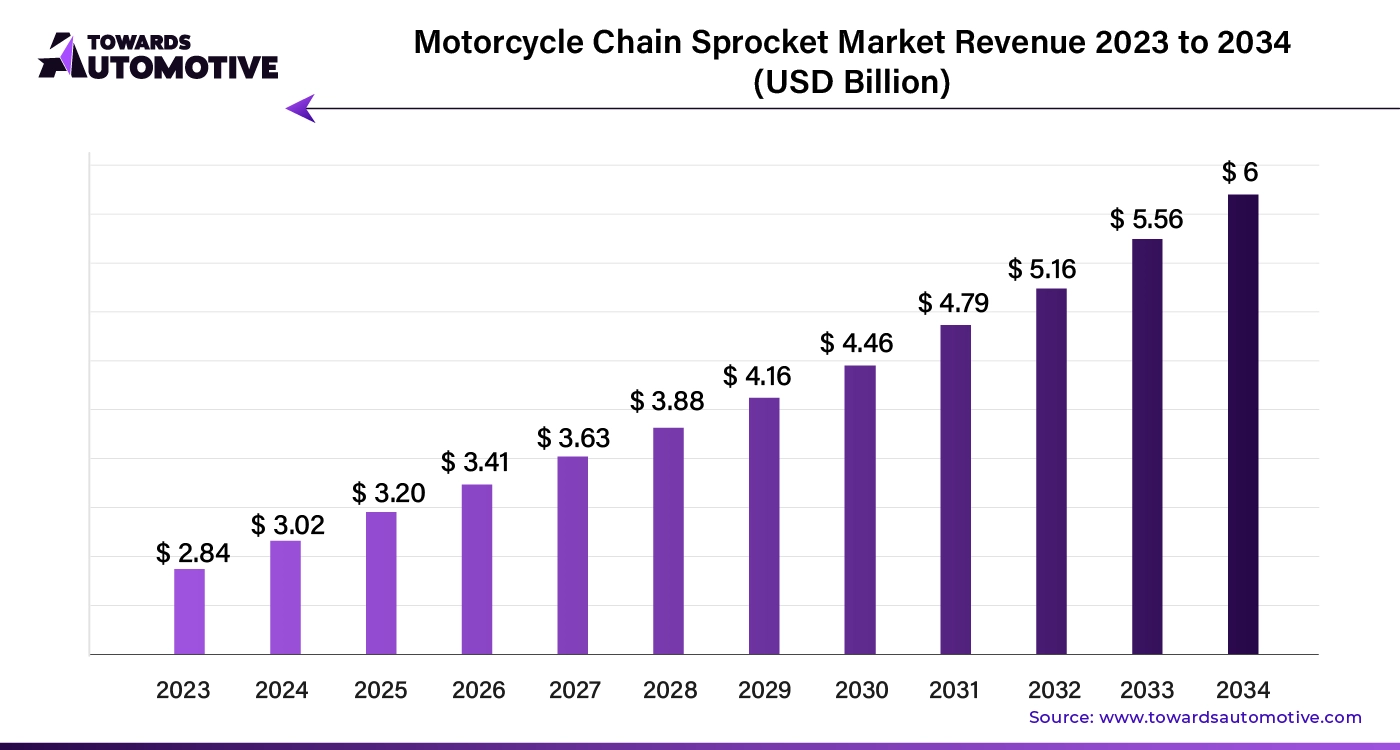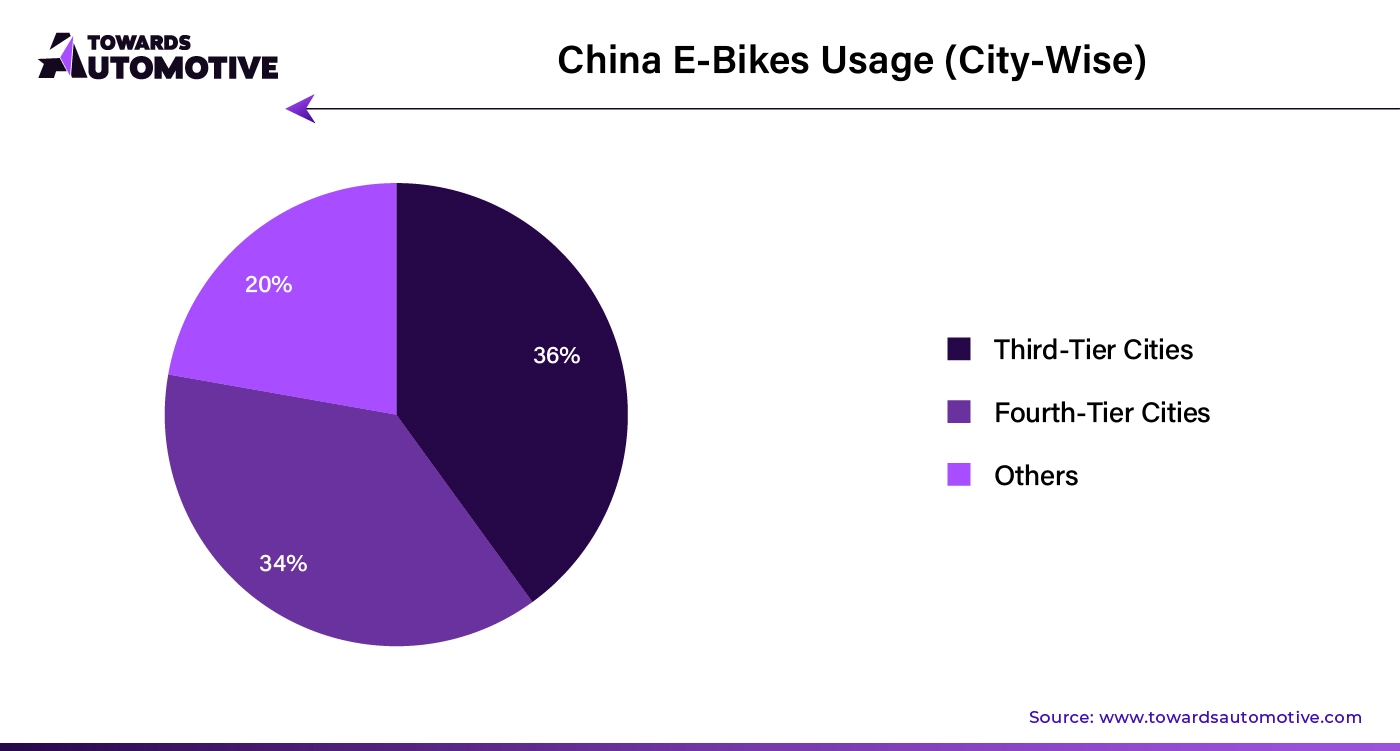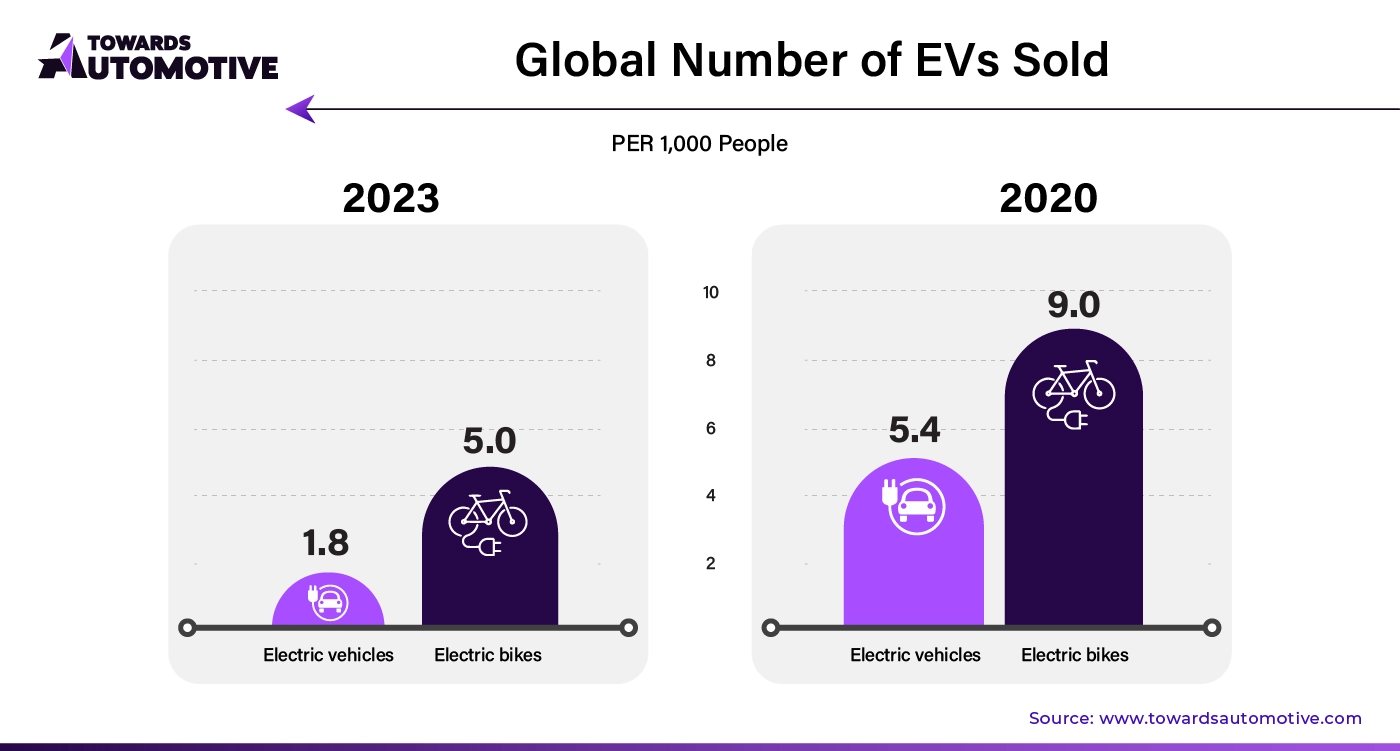February 2025

Senior Research Analyst

Reviewed By
The global motorcycle chain sprocket market size is calculated at USD 3.02 billion in 2024 and is expected to be worth USD 6.00 billion by 2034, expanding at a CAGR of 6.12% from 2024 to 2034.

Rising Motorcycle Sales and Production: Increased production and growing demand for motorcycles among enthusiasts are boosting the market for motorcycle chain sprockets.
Growing Trends: The surge in popularity of sports bikes and adventurous riding is driving demand for advanced motorcycle chain sprockets. Consumers' preferences for stylish and high-performance bikes are contributing to this growth.
Aftermarket Sales: Companies are capitalizing on the aftermarket by offering replacement chains and sprockets. These products help maintain bike performance and appeal to riders seeking upgrades.
Technological Advancements: Innovations in design and safety are enhancing motorcycle chain sprockets' performance and lifespan, fueling consumer interest in the latest products.
Environmental Regulations: Increasing focus on fuel efficiency and reduced carbon emissions is pushing for higher standards in motorcycle chain sprockets, driving market growth.
Economic Factors: Rising disposable incomes and consumer confidence in emerging economies are boosting the adoption of motorcycle chain sprockets.
E-commerce and Distribution: The expansion of e-commerce provides consumers with a wide range of options for motorcycle chains and sprockets, meeting diverse needs.
Product Quality: High-quality chains and sprockets attract consumers, enhancing market appeal and driving sales.
The automotive market valued at USD 4,070.19 billion in 2023, is experiencing growth and is projected to surpass USD 6,678.28 billion by 2032, with a significant CAGR of over 5.66%.
Economic Uncertainty: Economic downturns are reducing demand for motorcycle chains and sprockets, affecting both maintenance and replacement markets.
Quality Issues: Manufacturers struggle to maintain high quality standards, and issues like product duplication and safety concerns can limit market growth.
Supply Chain Disruptions: Events such as geopolitical tensions and the Covid-19 crisis disrupt supply chains, affecting component production and market revenue.
Intense Competition: The market's fragmentation with numerous players constantly innovating creates pressure. Products that fail to stand out can negatively impact market share.
Shifting Consumer Preferences: Changing riding habits and the rise of electric motorcycles are reducing demand for traditional motorcycle chains and sprockets.
Artificial Intelligence (AI) is revolutionizing the motorcycle chain sprocket market by enhancing efficiency and innovation. AI-driven predictive maintenance tools enable manufacturers to anticipate and address wear and tear before it causes failure, thus reducing downtime and extending the lifespan of sprockets. Machine learning algorithms analyze real-time data from motorcycle performance to optimize sprocket designs, improving durability and performance.
AI also streamlines the manufacturing process. Advanced robotics, guided by AI, ensure precision in production, minimizing errors and waste. This leads to cost reductions and faster production times, meeting the increasing demand for high-quality, reliable motorcycle components.
Moreover, AI supports the development of custom sprockets tailored to specific riding conditions or user preferences. This level of personalization drives market growth by appealing to a broader range of consumers.
In summary, AI enhances market growth by improving product reliability, manufacturing efficiency, and customization options. The integration of AI technologies not only boosts operational efficiency but also aligns with the growing demand for advanced, personalized motorcycle components.
The supply chain for the motorcycle chain sprocket market operates through a series of well-coordinated steps, each crucial for delivering quality products to end-users. It begins with raw material procurement, where suppliers provide essential materials like steel or aluminum. These materials are then transported to manufacturing plants, where they undergo processes such as casting, forging, and machining to create sprockets of varying sizes and specifications.
Manufacturers focus on precision and durability, ensuring that each sprocket meets industry standards. After production, the sprockets are inspected for quality and then packaged for distribution. Efficient logistics are critical at this stage; finished products are shipped to distributors or directly to retailers, depending on the market strategy
Retailers and distributors manage inventory levels to balance supply with demand, preventing shortages or overstocking. They also handle customer orders, ensuring timely delivery. Throughout the supply chain, communication and coordination among suppliers, manufacturers, and distributors are essential to maintain smooth operations and meet market needs effectively.
The motorcycle chain sprocket market thrives on the contributions of several key players, each enhancing the industry’s ecosystem. Prominent companies like JT Sprockets, Renthal, and Regina offer a diverse range of high-quality sprockets, known for their durability and performance. JT Sprockets leads with innovative designs and robust engineering, catering to both OEM and aftermarket needs. Renthal is renowned for its lightweight and high-strength sprockets, providing optimal performance for both professional racers and casual riders. Regina’s sprockets are celebrated for their longevity and precision, meeting the demands of various motorcycle models.
Another significant contributor is Sunstar Engineering, which supplies high-performance sprockets with a focus on advanced manufacturing techniques. Additionally, companies like DID and Vortex Racing play crucial roles by offering custom solutions and high-end sprockets that meet specific performance requirements. These companies drive the market forward with technological advancements and quality enhancements.
Overall, these industry leaders collectively shape the motorcycle chain sprocket market by offering innovative products, addressing diverse customer needs, and advancing manufacturing standards. Their contributions ensure a dynamic and competitive market landscape.
India: Leading Growth with a 6.90% CAGR
India is set to lead the motorcycle chain and sprocket market with the highest forecast CAGR of 6.90% from 2023 to 2033. The country's expanding population and preference for two-wheelers as a cost-effective transportation option are driving this rapid growth. Indian consumers are increasingly choosing motorcycles for their practicality, leading to heightened demand for high-quality chains and sprockets. Manufacturers are focusing on developing advanced, fuel-efficient bikes and collaborating with automakers to drive innovation. Government policies are also supporting market expansion by enhancing sales opportunities.
China: Dominating the Market with a 5.20% CAGR
China stands out as a dominant player in the global motorcycle chain and sprocket market, with a strong CAGR of 5.20%. The country’s extensive production capabilities and emphasis on providing quality, affordable components bolster its leading position. China’s vast manufacturing base supports a broad range of motorcycle parts, including chains and sprockets, which are exported worldwide. The increasing popularity of electric two-wheelers and sophisticated motorcycle engines further fuels market growth.

Canada and the United States: Steady Growth
In North America, Canada and the United States show steady growth in the motorcycle chain and sprocket market. Canada is projected to achieve a CAGR of 4.90%, driven by the demand for high-quality components suited for diverse riding conditions. The growing interest in rugged terrains and innovative product offerings fuels this growth. Meanwhile, the United States is expected to experience a CAGR of 4.20%, driven by consumer enthusiasm for biking and technological advancements in motorcycles. Both countries benefit from a robust e-commerce and retail distribution network for sustainable automotive components.
Europe: France’s Rich Tradition with Moderate Growth
France is anticipated to grow at a CAGR of 3.2%, reflecting its rich motorcycle heritage and demand for high-quality, visually appealing components. Despite this growth, France’s market remains moderate compared to the rapidly expanding regions like India and China. The focus on lightweight and eco-friendly materials, along with consumer preference for sporty bikes, contributes to steady market growth.

The standard motorcycle type is poised to dominate the global market, capturing approximately 72.5% of the share by 2033. This segment's leading position is attributed to its versatility, high quality, and enhanced rider comfort. As consumers increasingly seek fuel-efficient and comfortable rides, the popularity of standard motorcycles is on the rise.
The appeal of standard motorcycles stems from their ease of replacement and modification, meeting consumer preferences for customizable components. Major companies are utilizing online platforms to boost sales and address the growing demand. The emphasis on long rides and improved energy storage solutions further supports the expansion of this segment.
Standard rolling chains are projected to secure around 58% of the global market share by 2033. This segment is benefiting from the rising demand for reliable and flexible riding options, including off-road choices. Riders favor these chains for their durability and cost-effectiveness, which enhance ride safety and performance.
Manufacturers are responding by developing high-quality, high-performance rolling chains to meet market needs. The automotive sector’s preference for these chains is also driven by their role in maintaining vehicle conditions and promoting sustainable practices.
The global motorcycle chain sprocket market is highly competitive, with leading players focusing on developing reliable and safe automotive products. These companies are heavily investing in research and development to drive innovation and market growth.
To gain a competitive edge, key players are employing various strategies such as collaborations, partnerships, mergers, acquisitions, and product launches. They actively seek customer feedback to improve their products and attract attention. Additionally, they are promoting their products through retail shops, trade shows, and online platforms to strengthen their brand reputation.
By Motorcycle Type
By Engine Capacity
By Chain Type
By Sales Channel
By Region
February 2025
February 2025
February 2025
February 2025
Dr. Arjun Patel is a distinguished expert in the automotive industry, holding advanced degrees in Automotive Engineering and Mechanical Engineering. His expertise spans automotive market dynamics, technological advancements, and sustainable practices. Dr. Patel excels in conducting in depth research and analysis on market trends, consumer preferences, and the economic implications within the automotive sector. He is renowned for his insightful publications on topics such as electric vehicles, autonomous driving technologies, and the evolution of sustainable transportation solutions. Dr. Patels research contributions have significantly advanced understanding in the field, earning him recognition as a leading authority in automotive research and analysis.
We offer automotive expertise for market projections and customizable research, adaptable to diverse strategic approaches.
Contact Us